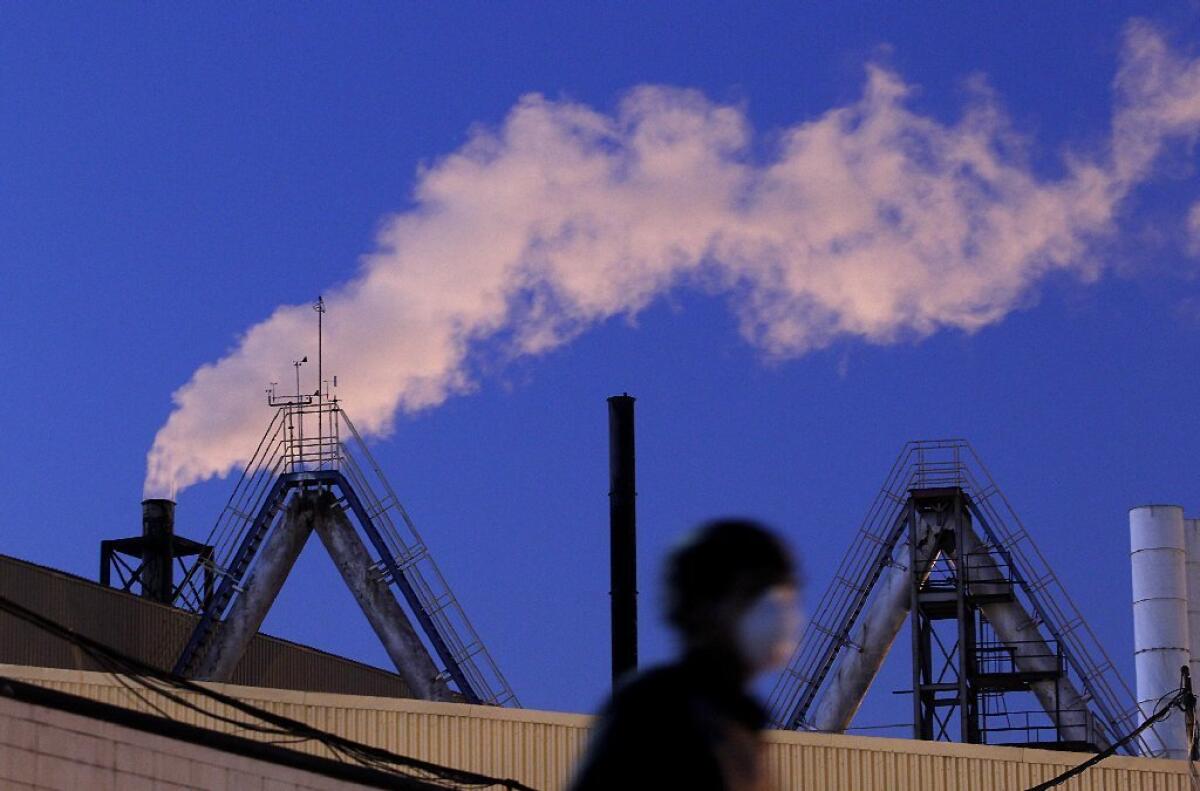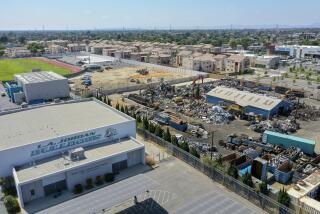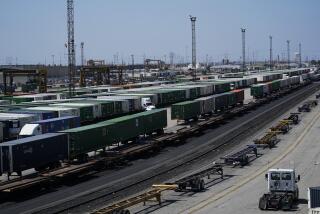Vernon battery recycler denied permission to resume lead smelting

- Share via
A Vernon battery recycler may not resume lead smelting until its furnaces can operate in compliance with tough new air district rules on arsenic emissions.
The South Coast Air Quality Management District’s hearing board ruled Tuesday that Exide Technologies, which is accused of endangering the health of more than 100,000 people across southeast Los Angeles County, must maintain “negative pressure” in its furnaces.
That means particles from the smelting process must be sucked into air pollution control devices that can keep toxic compounds from wafting over neighborhoods.
Exide had sought a variance from that rule, saying it needed more time to install new equipment, but the air district’s independent hearing board denied that request. A Superior Court judge had denied a similar motion Monday.
“It’s a very good day for air quality,” said Nancy Feldman, the air district’s principal deputy district counsel.
Exide officials issued a statement saying “the company remains committed to meeting the new limits” and is “considering next steps.”
Company officials have said previously that arsenic emissions have plummeted in recent months and no longer pose a danger to the community. The company has pledged to spend $5 million for new equipment such as air scrubbers, as well as millions more for improvements ordered by other regulators in recent months.
That has not satisfied community members and elected officials, who have been lobbying air regulators and others to take action against Exide for the last year. An air district study in March 2013 found that arsenic emissions from the plant posed an elevated cancer risk to 110,000 people living nearby.
The plant has also been cited several times in recent years, often for exceeding permissible levels of lead.
David Pettit, a lawyer with the Natural Resources Defense Council, said he was pleased with the board’s action.
“This puts Exide in a very difficult position,” Pettit said. “They are running out of legal options.”
Last month, officials with the state Department of Toxic Substances Control, which also regulates the plant, announced that testing had revealed elevated levels of lead in the soil at homes and a park north and south of the Exide Technologies plant.
Officials issued health warnings, telling people not to let children play in bare soil or eat leafy green vegetables grown in it. They also ordered testing of more homes.
Meanwhile, county officials this week began offering free blood tests, paid for by Exide, to anyone who thinks they might have been affected by the emissions.
Air district officials said they did not know how long it might take Exide to make the necessary changes to its operations to reopen.
The plant has been shut down since March 14 for repairs. Workers apparently stirred up so much lead dust, however, that Exide has repeatedly run afoul of air district rules on safe levels of lead, officials said. As a result, repair work has also been delayed.
The state is reviewing Exide’s application for a new permit to operate. The plant has been running on a temporary permit for decades and is the only hazardous waste facility in the state that has never received a full permit as required by the 1976 federal Resource Conservation and Recovery Act.
More to Read
Sign up for Essential California
The most important California stories and recommendations in your inbox every morning.
You may occasionally receive promotional content from the Los Angeles Times.










